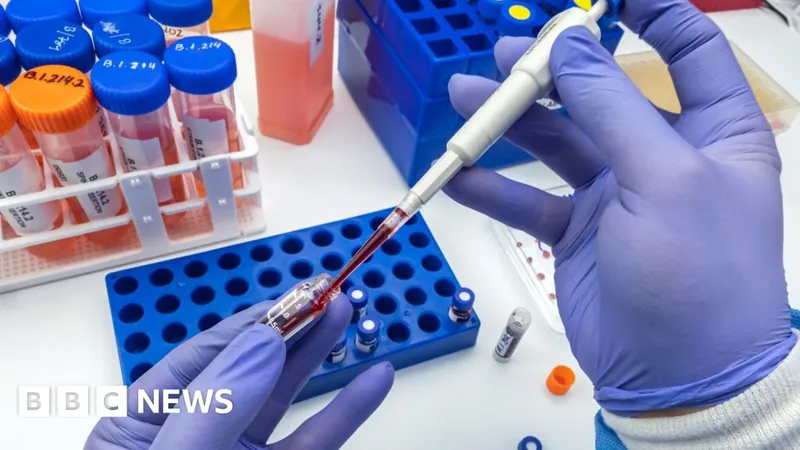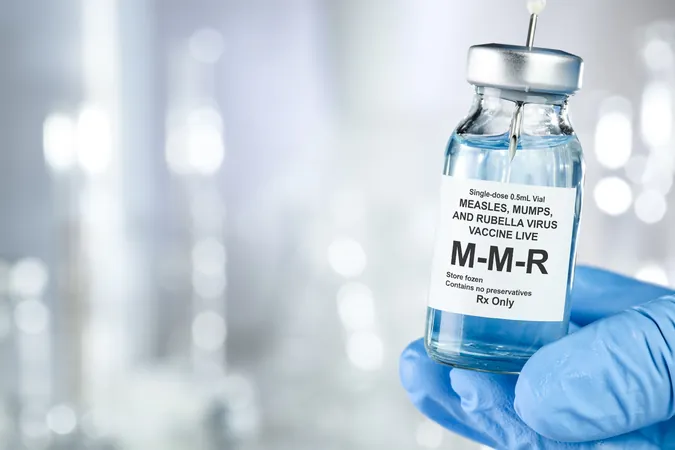
Medway Maritime A&E to Implement Routine HIV and Hepatitis Testing
2025-05-09
Author: Yu
Mandatory Testing for HIV and Hepatitis Begins in Medway
Patients visiting the Medway Maritime Hospital's Accident & Emergency department will now be routinely tested for HIV, hepatitis B, and hepatitis C, unless they decide to opt out. This initiative is part of a nationwide scheme involving approximately 50 hospitals across the UK.
Connecting Patients to Life-Saving Treatments
If patients test positive for any of these viruses, they will be promptly referred to specialized teams at Medway or the Kent Community NHS Trust. Dr. Bayo Da-Costa, consultant and clinical director for acute and emergency medicine, emphasizes that many patients remain unaware of their infection status. “By carrying out routine blood tests, we can detect these conditions early and provide effective treatment,” he explains.
Tackling Undiagnosed Cases: The Importance of Early Detection
In England alone, a significant number of individuals are estimated to be living with undiagnosed HIV, hepatitis B, or C. Fortunately, these viruses can be effectively managed and hepatitis C can even be cured, significantly lowering the risk of severe health complications and halting further transmission.
A Game-Changer for Emergency Care in England
Funded by the National Institute for Health and Care Research, this program targets patients aged 16 and over who visit the emergency department, making blood-borne virus screening a standard part of their routine tests unless they opt out. Medway Maritime Hospital serves over 150,000 patients each year, making this initiative a potentially game-changing step in public health.
Aiming for a Healthier Future: National Goals Against HIV
According to Dr. Da-Costa, the new opt-out testing will drastically increase the number of identified cases of HIV, hepatitis B, and hepatitis C in the community. This comes in line with the national HIV action plan from the Department of Health and Social Care, which aims to eliminate HIV transmissions in England by 2030, targeting an 80% reduction in transmissions between 2019 and 2025.




 Brasil (PT)
Brasil (PT)
 Canada (EN)
Canada (EN)
 Chile (ES)
Chile (ES)
 Česko (CS)
Česko (CS)
 대한민국 (KO)
대한민국 (KO)
 España (ES)
España (ES)
 France (FR)
France (FR)
 Hong Kong (EN)
Hong Kong (EN)
 Italia (IT)
Italia (IT)
 日本 (JA)
日本 (JA)
 Magyarország (HU)
Magyarország (HU)
 Norge (NO)
Norge (NO)
 Polska (PL)
Polska (PL)
 Schweiz (DE)
Schweiz (DE)
 Singapore (EN)
Singapore (EN)
 Sverige (SV)
Sverige (SV)
 Suomi (FI)
Suomi (FI)
 Türkiye (TR)
Türkiye (TR)
 الإمارات العربية المتحدة (AR)
الإمارات العربية المتحدة (AR)